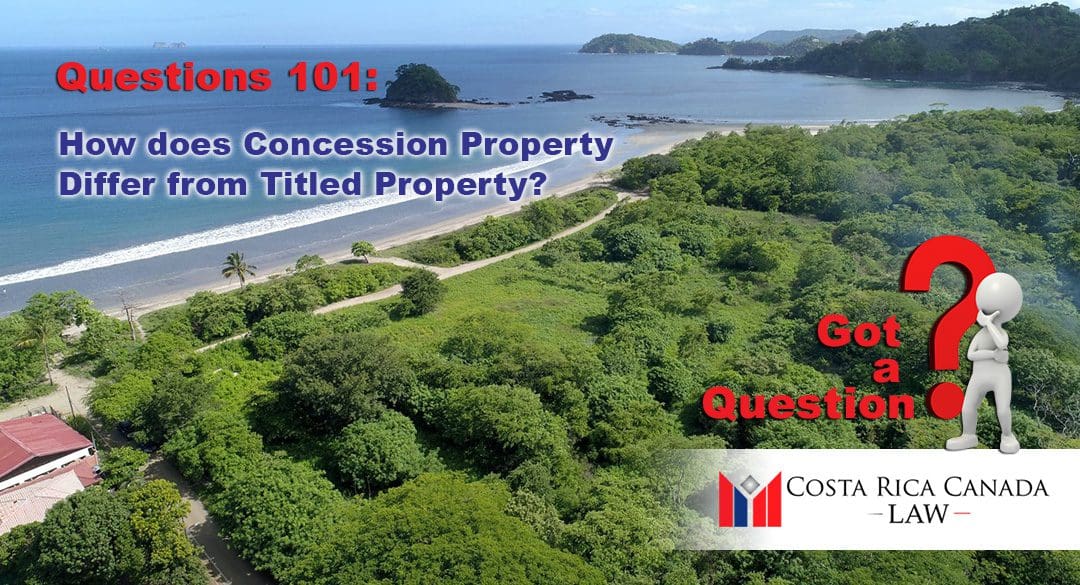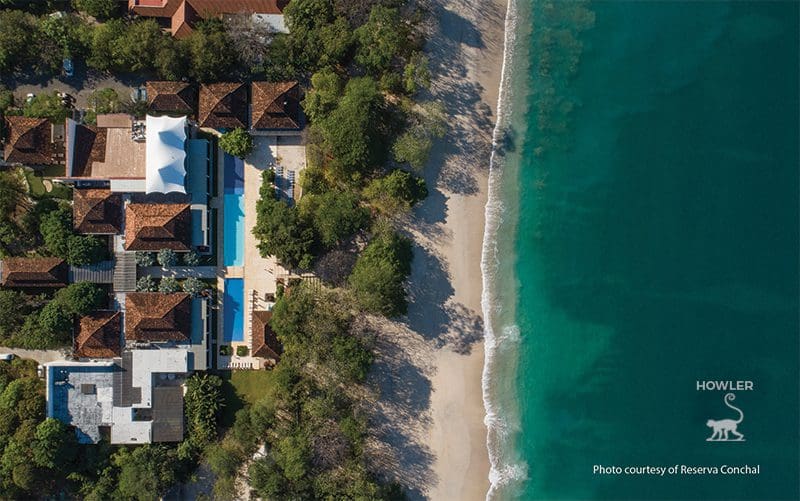
How Does Concession Property Differ From Titled Property?
What are the differences between registered title properties and concession leasehold properties in Costa Rica? This outlines the key distinctions and considerations, particularly for foreign ownership.
Registered title properties
Most properties in Costa Rica have an independently registered property title in the National Registry. Each such property comes with a registered survey plan indicating the property size, boundaries and location. The survey plan number is annotated on the registered property title. Together, they provide a complete picture of any given property, with all liens, mortgages and annotations of easements, or other restrictions. The Costa Rica government guaranties the property title to be correct as it is registered, except in the case of fraud.
A registered title property can be freely transferred between adult individuals or companies that are registered in the National Registry. Costa Rica lawyers and notaries perform the legal due diligence to establish the state of any given registered titled property. There are no title insurance companies or title insurance offered in Costa Rica.
Concession leasehold properties
In 1977, the Maritime Zone Law was passed providing for the creation of concession properties in beachfront areas of the country. If a property was a registered titled property to the public zone (50 meters inland from the high tide line), prior to the passage of the Maritime Zone Law, it remains as such and can be freely transferred in the same manner as has been previously discussed.
The concession property provisions provide for leasing of land from the government that equates with the next 150 meters inland from the 50- meter public zone line previously described, where no registered property title exists for the property. Concessions are only granted in those beachfront areas where the local municipality has adopted a municipal zoning plan, providing for the existence of such concessions for touristic-oriented, commercial or residential use, as is recognized by the Costa Rica Tourism Institute (ICT).
The municipality is charged with the administering of such concessions granted by the government. The normal concession lease granted is for a 20-year period. Annual payments, which are similar to municipal property taxes, must be paid to the municipality in order to keep the concession lease current. Concession properties are likewise registered in the National Registry with a registered survey plan.
Restrictions on foreigners acquiring a concession property Interest
Foreigners must have five years of legal residency status in Costa Rica prior to acquiring a majority interest in a concession property. If a foreigner wishes to acquire such an interest prior to having five years of residency status, a trust may be created where a Costa Rican citizen holds a 51% interest in the concession property while the foreigner’s five-year residency requirement period is being established. Following the establishment of five years of residency, the concession interest held in trust, may be transferred to the foreigner in its entirety.
Foreigner inheritance of a concession property interest
An interesting consideration for foreigners is the testamentary disposition of such concession interests. Inheriting parties must also meet the five-year residency rule, in order to acquire the entire concession property lease interest following probate. Alternatively, they would have to establish a trust-holding relationship, as was previously described, until the residency requirement was met.
For more information and answers to your questions on diverse legal topics, visit Costa Rica Canada Law: www.costaricacanadalaw.com











